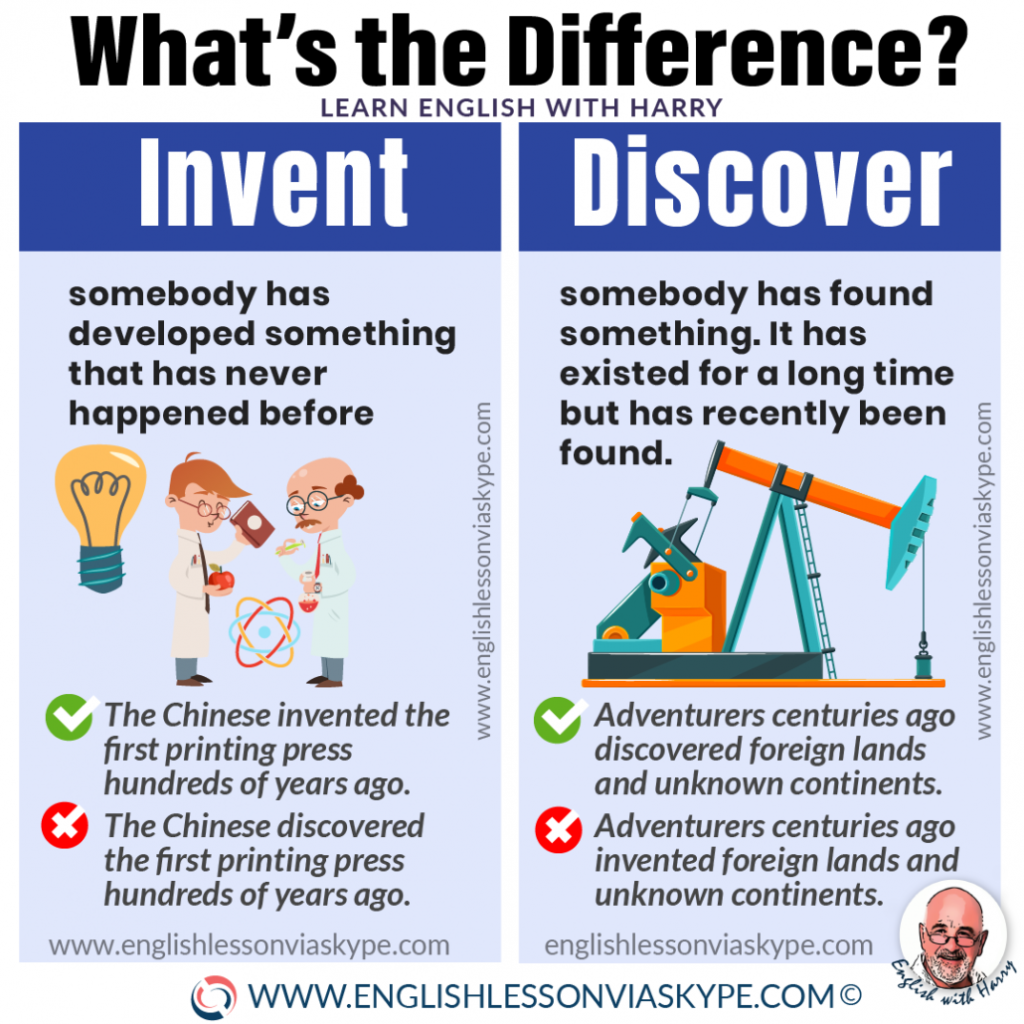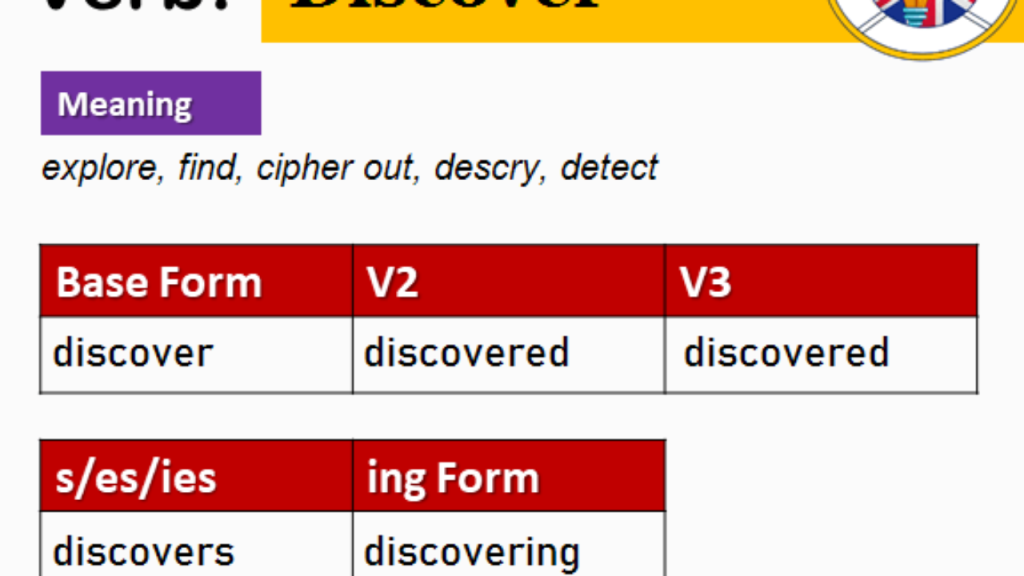Discover or Discovers: Unveiling the Secrets of the Unknown
Introduction
Dear Readers,
Welcome to our article where we embark on a journey to explore the fascinating world of discovery. Today, we delve into the topic of discover or discovers and uncover the hidden gems that lie within. Join us as we unravel the mysteries of this intriguing concept and shed light on its significance in various aspects of life.

Image Source: englishlessonviaskype.com
In this article, we will provide you with a comprehensive understanding of discover or discovers, including its definition, who plays a role in it, when and where discoveries occur, why they are important, and how they shape the world around us. So, fasten your seatbelts and get ready to embark on an enlightening adventure!
What is Discover or Discovers? 🌍
Discover or discovers encompasses the act of finding or uncovering something new, be it knowledge, places, or even oneself. It is a process that involves exploration, curiosity, and a thirst for knowledge. Throughout history, discoveries have revolutionized our understanding of the world and propelled humanity forward. From scientific breakthroughs to archaeological findings, discoveries have shaped the course of civilization.
Who Makes Discoveries? 🕵️♂️
Discoveries can be made by individuals or groups from various fields such as science, art, literature, and technology. Scientists, explorers, researchers, and inventors are among the key players in the realm of discoveries. Their relentless pursuit of knowledge and unyielding spirit of exploration have paved the way for countless breakthroughs that have transformed our lives.
When and Where Do Discoveries Occur? ⏱️🌎

Image Source: englishgrammarhere.com
Discoveries can happen at any time and in any corner of the globe. Throughout history, significant discoveries have occurred during different eras and in diverse locations. From the ancient wonders of Egypt to the modern laboratories of Silicon Valley, discoveries continue to shape our world. Whether it’s a groundbreaking scientific discovery or an artistic masterpiece, the time and place of a discovery can greatly impact its significance.
Why are Discoveries Important? 🌟
Discoveries are the catalysts for progress and innovation. They expand our knowledge, challenge existing beliefs, and open doors to new possibilities. They drive advancement in fields such as medicine, technology, and the arts. Moreover, discoveries have the power to inspire, spark curiosity, and ignite a sense of wonder within us. They remind us of the limitless potential of the human mind and the boundless wonders that await us.
How Do Discoveries Shape Our World? 🔍
Discoveries shape our world in numerous ways. Scientific discoveries lead to breakthroughs in medicine, enabling us to combat diseases and improve the quality of life. Technological discoveries revolutionize industries and enhance our daily lives. Artistic discoveries challenge our perspectives and evoke emotions. Furthermore, discoveries often pave the way for new opportunities, create employment, and drive economic growth. They are the building blocks of progress and the keys to unlocking a brighter future.
Advantages and Disadvantages of Discoveries ✅❌
Discoveries come with their own set of advantages and disadvantages. On one hand, discoveries lead to advancements and improvements in various aspects of life. They foster innovation, create new opportunities, and improve our understanding of the world. However, discoveries can also have unintended consequences and ethical dilemmas. They can disrupt established systems, challenge societal norms, and raise ethical questions. It is essential to navigate these complexities carefully to ensure that discoveries are beneficial for the greater good.
Frequently Asked Questions (FAQs) ❓
1. What role does curiosity play in making discoveries?
Curiosity is the driving force behind discoveries. It fuels our desire to explore the unknown, ask questions, and seek answers. Without curiosity, the world would remain stagnant, and discoveries would be far and few between.
2. Are all discoveries positive?
While many discoveries have a positive impact, some can have negative consequences. It is crucial to consider the potential implications and ethical aspects of a discovery to ensure that its benefits outweigh any harmful effects.
3. Can anyone make a discovery?
Yes, anyone can make a discovery. Whether big or small, discoveries can come from individuals of all backgrounds and fields. The key is to foster a mindset of curiosity, open-mindedness, and a willingness to explore.
4. How do discoveries contribute to personal growth?
Discoveries help individuals broaden their horizons, challenge their beliefs, and foster personal growth. They inspire self-reflection, expand knowledge, and ignite a passion for lifelong learning.
5. What can we do to encourage more discoveries?
We can foster an environment that encourages curiosity, supports research and exploration, and provides resources for discovery. Promoting education, funding scientific advancements, and embracing diversity of thought are crucial steps towards inspiring more discoveries.
Conclusion: Embrace the Power of Discovery ✨
Dear Readers, we hope this journey into the realm of discover or discovers has ignited a spark within you. The power of discovery lies within each of us, waiting to be unleashed. We encourage you to embrace curiosity, explore the unknown, and make your own discoveries. Whether it’s unlocking the mysteries of the universe or unraveling the secrets of the human mind, the possibilities are endless. So go forth, dear readers, and discover the extraordinary!
Thank you for joining us on this enlightening expedition.
Final Remarks
Disclaimer: The views and opinions expressed in this article are solely those of the author and do not necessarily reflect the official policy or position of any organization. This article is for informational purposes only and should not be considered as professional advice. Readers are encouraged to conduct further research and analysis before making any decisions.